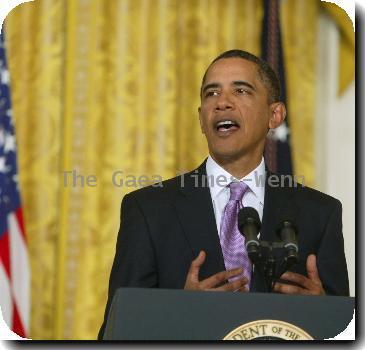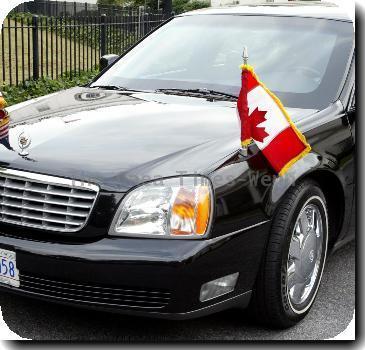Couples in gay marriage case testify about emotional ordeal of ban in California
By Paul Elias, APMonday, January 11, 2010
Calif couples tell of gay marriage ban’s toll
SAN FRANCISCO — Two same-sex couples gave intimate accounts of their private and public lives Monday during the opening day of a highly anticipated federal trial to decide the constitutionality of state bans on gay marriage, at times tearfully testifying about moments of awkwardness, disappointment and shame they said resulted from their inability to legally wed.
“I’ve been in love with a woman for 10 years, and I don’t have access to a word for it,” said 45-year-old Kristin Perry of Berkeley, the lead plaintiff in a lawsuit seeking to overturn the voter initiative that outlawed gay marriage in California. “In a store, people want to know if we are sisters or cousins or friends, and I have to decide every day if I want to come out wherever we go, if we are going to risk that negative reaction.”
Perry and her partner, Sandra Stier, 47, and a gay couple from Los Angeles, Paul Katami, 37, and Jeffrey Zarrillo, 36, were the first witnesses in a case that could become a landmark that determines if gay Americans have the right to marry. Their testimony, designed to demonstrate that the law passed as Proposition 8 promotes inequality and bias, was expected to provide the human element during proceedings that will rely heavily on evidence supplied by academic experts.
Katami, a manager for a fitness company, described the 2008 campaign to pass Proposition 8 as a series of uncomfortable encounters. He recalled being stuck in traffic and seeing another driver with a bumper sticker promoting the measure as a way to protect children. Katami told her he disagreed with the message, and she responded that marriage “is not for you people.”
“I pay my taxes, I own a house,” he said. “But in that moment, being gay means I am less than, I have been relegated to a corner, and I’m tired of living my life that way because I think of myself as a good person.”
The trial is the first in a federal court on the question of whether the U.S. Constitution’s guarantee of equal treatment makes it unlawful for states to withhold marriage from gays.
Regardless of the outcome, the case is likely to be appealed to the U.S. Supreme Court, where it could lead to laws that restrict marriage to a man and a woman being upheld or abolished nationwide.
The couples’ chief attorneys are noted conservative litigator Theodore Olson and one of his former liberal adversaries, David Boies. Earlier in the day, Olson quoted the U.S. Supreme Court’s own lofty description of matrimony to demonstrate what his clients were being denied.
“In the words of the highest court in the land, marriage is the most important relationship in life and of fundamental importance to all individuals,” said Olson, who represented George W. Bush during the Florida recount in 2000 and later served as his solicitor general.
Olson had barely launched into his opening statement when Chief U.S. District Judge Vaughn R. Walker, who is presiding over the trial without a jury, interrupted him to ask how Proposition 8 could be discriminatory since California already allows gays to enter into domestic partnerships that carry the same rights and benefits of marriage.
“If California would simply get out of the marriage business and classify everyone as a domestic partnership, would that solve the problem?” the judge asked.
Olson answered that such a move would resolve the constitutional issues but likely wouldn’t be politically feasible.
“I suspect the people of California would not want to abandon the relationship that the proponents of Proposition 8 spent a tremendous amount of resources describing as important to people, and so important it must be reserved for opposite-sex couples,” he said.
Olson went on to argue that as long as marriage remains available only to opposite-sex couples, the state will be “relegating gay men and lesbians to badges of inferiority that forever stigmatize their relationships as inferior.”
If societal attitudes toward gays and marriage are changing, Walker asked, “why shouldn’t the courts just stand back” and let the political process decide the issue?
“Because this is why you have courts, and this is why we have a Constitution, and this is why we have a 14th Amendment,” Olson said. “We have courts to declare that our citizens — loving, upstanding citizens — are being hurt every day, to declare those measures unconstitutional, and that’s why we are here today.”
Charles Cooper, who is representing Proposition 8 sponsors, launched into his opening statement by saying Proposition 8 was motivated not by “ill-will nor animosity toward gays and lesbians, but special regard for the institution of marriage.”
Cooper also noted that President Barack Obama doesn’t support legalizing gay marriage, a remark that prompted Walker to point out that Obama’s own parents would not have been allowed to get married in some states before the Supreme Court overturned state bans on interracial marriage in 1967.
“That indicates there is quite a change in individuals’ entitlement to enter the institution” of marriage, Walker said.
Cooper said laws that prevented people of different races from marrying can’t be compared to bans on same-sex marriage because interracial couples can engage in “naturally procreative relationships” that governments have an interest in fostering to promote stable families.
“It is the purpose of marriage — the central purpose of marriage — to ensure, or at least encourage and to promote that when life is brought into being, it is by parents who are married and who take the responsibility of raising that child together,” he said.
Walker pressed for examples of how allowing gay couples to marry “in any way diminishes a procreative function or denigrates a marriage for an opposite-sex couple.”
Cooper answered that the effect of gay marriage on traditional marriage is unknown because the practice is still so new. Only five states have opened the institution to same-sex couples, and three of them were required to do so by judges, he said.
“The people of California are entitled to await the results of the experiment and to assess them before they endorse a fundamental change in the definition of marriage,” he said.
Two hours before the trial was scheduled to start, the Supreme Court blocked video of the proceedings from being posted on YouTube.com. It said justices need more time to review that issue and put the order in place at least until Wednesday.
Over the weekend, Proposition 8’s sponsors sought to block YouTube broadcasts after Walker approved the plan last week, saying the case was appropriate for wide dissemination because it dealt with an issue of wide interest and importance.
Rick Jacobs, chairman of the Courage Campaign, a Los Angeles-based gay rights organization, said his group was disappointed with the decision to bar cameras and called on the high court to lift its ban.
“It’s time that the debate about marriage equality is seen for what it is — a debate over the rights of our friends and families to live their lives freely,” he said.
Associated Press Writer Mark Sherman in Washington contributed to this report.
Tags: Barack Obama, California, Constitutional Amendments, Couples, Los Angeles, North America, Political Issues, Relationships, San Francisco, United States, Youtube


